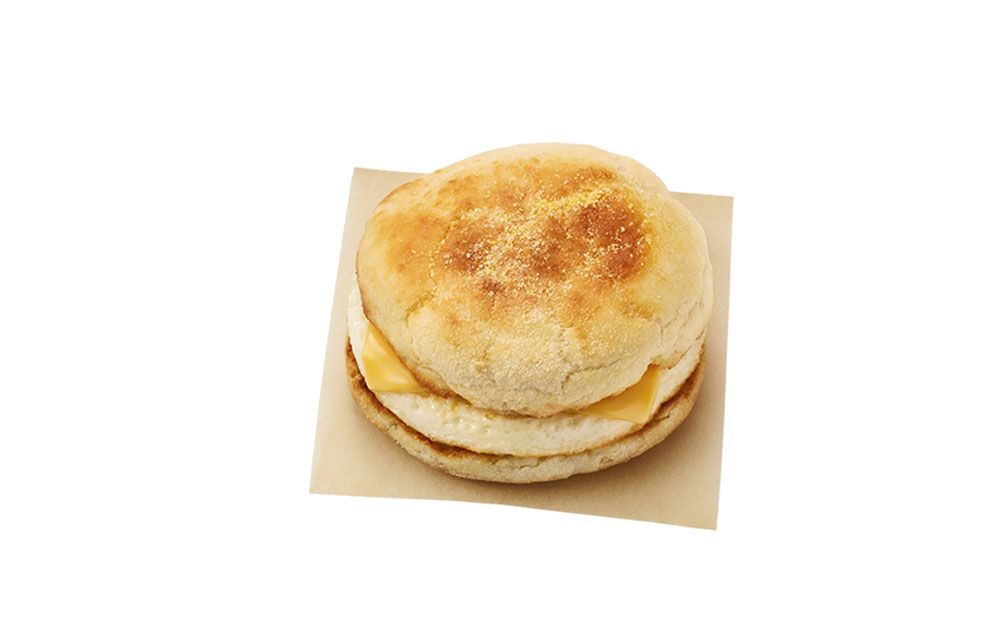Ingredient Analysis

Dunkin egg and cheese english muffin nutrition – Dunkin’s Egg and Cheese English Muffin is a classic breakfast staple, but what exactly goes into making this convenient and tasty treat? Let’s delve into the key ingredients and their nutritional contributions to understand the complete picture of this popular breakfast sandwich.
The Dunkin’ Egg and Cheese English Muffin primarily consists of a toasted English muffin, a fried egg, and a slice of cheese. While the specific formulation may vary slightly depending on location and supplier, the core components remain consistent. The English muffin itself typically contains enriched flour, water, yeast, and various other ingredients for texture and preservation. The egg provides protein and essential nutrients, while the cheese contributes fat, protein, and calcium.
The exact type of cheese used may vary (often a blend of cheddar and other cheeses), influencing the overall nutritional profile. Additional ingredients like butter or oil might be used in the cooking process, subtly impacting the final caloric and fat content.
Key Ingredient Nutritional Profiles
Let’s examine the individual nutritional contributions of the main components. Enriched flour in the English muffin provides carbohydrates, a primary source of energy. The egg is a powerhouse of protein, vital for muscle building and repair, as well as various vitamins and minerals like vitamin D and choline. The cheese, depending on the type, offers varying levels of protein, calcium (essential for bone health), and fat.
It’s important to note that the fat content can significantly influence the overall calorie count of the sandwich.
The Dunkin’ egg and cheese English muffin, a seemingly innocent breakfast, holds a secret nutritional profile. Its caloric content, a whisper in the shadows, is often compared to other convenient snacks, prompting investigation into similar processed foods. For instance, one might consider the nutritional breakdown of a seemingly unrelated item, like the cheese stick nutrition colby jack , to understand the broader landscape of fast-food nutrition.
Returning to the Dunkin’ muffin, the mystery deepens: how does its sodium content compare to the cheese stick’s? The answer, it seems, remains elusive.
Nutritional Comparison with Other Dunkin’ Breakfast Sandwiches
Comparing the Dunkin’ Egg and Cheese English Muffin to other breakfast sandwiches reveals variations in nutritional content primarily driven by the additions of meat and different bread choices. For instance, a sausage, egg, and cheese sandwich will have a significantly higher calorie and fat content due to the inclusion of sausage. Similarly, a bacon, egg, and cheese sandwich will have a similar caloric profile to the sausage variant.
The choice of bread also plays a role; a croissant-based sandwich will generally have more calories and fat than an English muffin-based one.
- Dunkin’ Egg and Cheese English Muffin: Moderate calorie count, moderate fat, good source of protein.
- Dunkin’ Sausage, Egg and Cheese Sandwich: High calorie count, high fat, higher protein than the English muffin option.
- Dunkin’ Bacon, Egg and Cheese Sandwich: High calorie count, high fat, similar protein to the sausage option.
- Dunkin’ Steak, Egg and Cheese Sandwich: High calorie count, moderate to high fat, high protein.
Potential Allergens, Dunkin egg and cheese english muffin nutrition
Individuals with allergies should be aware of potential allergens present in the Dunkin’ Egg and Cheese English Muffin. Key allergens to consider include: wheat (from the English muffin), eggs, and dairy (from the cheese). Soy and other ingredients may also be present depending on the specific formulation and processing, necessitating careful checking of ingredient lists for those with multiple sensitivities.
Nutritional Comparison to Similar Products

Choosing a breakfast sandwich can be a tough decision! Understanding the nutritional content of your favorite options is key to making informed choices that align with your health goals. This section compares the Dunkin’ Egg and Cheese English Muffin to similar offerings from other popular brands, highlighting both nutritional similarities and differences, as well as healthier alternatives.
Breakfast Sandwich Nutritional Comparison
The following table compares the Dunkin’ Egg and Cheese English Muffin to similar breakfast sandwiches from competing brands. Note that nutritional information can vary slightly depending on location and preparation methods. These values represent approximate averages based on readily available information from brand websites and nutritional databases.
| Brand | Item | Calories | Sodium (mg) |
|---|---|---|---|
| Dunkin’ | Egg & Cheese English Muffin | 300-350 | 700-800 |
| McDonald’s | Egg McMuffin | 300-310 | 750-800 |
| Starbucks | Bacon Gouda Breakfast Sandwich | 470-500 | 900-1000 |
| Subway | Egg & Cheese on an English Muffin | 250-300 | 600-700 |
Healthier Alternatives
While convenient, many breakfast sandwiches are high in calories, fat, and sodium. Consider these healthier alternatives for a more balanced start to your day:
Opting for a whole-wheat English muffin instead of a regular one increases fiber intake, promoting better digestion and satiety. Choosing a breakfast sandwich with leaner protein sources, such as turkey bacon or egg whites, reduces saturated fat and cholesterol. Adding fresh vegetables, like spinach or tomatoes, boosts your vitamin and mineral intake. Finally, preparing your breakfast sandwich at home allows for greater control over ingredients and portion sizes, leading to a healthier and potentially lower-calorie option.
For example, a homemade egg white and spinach sandwich on a whole-wheat English muffin with a light spread of avocado could significantly reduce calories and increase nutritional value compared to the Dunkin’ option.
Ingredient Comparison
Understanding the ingredients used in different breakfast sandwiches can help you make informed choices. The following table provides a simplified comparison. Note that specific ingredient lists can vary slightly depending on location and supplier.
| Brand | Item | Key Ingredients |
|---|---|---|
| Dunkin’ | Egg & Cheese English Muffin | Eggs, Cheese, English Muffin, Butter |
| McDonald’s | Egg McMuffin | Eggs, Cheese, English Muffin, Butter |
| Starbucks | Bacon Gouda Breakfast Sandwich | Eggs, Bacon, Gouda Cheese, Artisan Roll |
| Subway | Egg & Cheese on an English Muffin | Eggs, Cheese, English Muffin |
FAQ Corner: Dunkin Egg And Cheese English Muffin Nutrition
Is the Dunkin’ Egg and Cheese English Muffin gluten-free?
No, it contains wheat from the English muffin, making it unsuitable for those with gluten intolerance or celiac disease.
Can I customize my Dunkin’ Egg and Cheese English Muffin to make it healthier?
You could ask for less cheese or request a whole-wheat English muffin if available, although this may not always be an option.
How many Dunkin’ Egg and Cheese English Muffins would I need to eat to reach my daily recommended protein intake?
This depends on your individual daily protein needs, which vary based on factors like age, activity level, and overall health. Check with a nutritionist or doctor to determine your personalized protein requirements.
Are there vegetarian options similar to the Dunkin’ Egg and Cheese English Muffin?
Many coffee shops and restaurants offer vegetarian breakfast sandwiches with egg substitutes, cheese, and vegetables on whole-wheat bread or English muffins.


